The Abkhaz-Abaza Diaspora of Jordan and, personally, the head of the “Diwan Abaza” public organization, Hasan Abaza (Chichba), is a vivid example of how a deep feeling for the homeland lives and manifests itself in people, even if the truth has been hidden from them for a long time.
Izolda Khagba
One can live a long life full of events and meetings, but not know that the most dear to the heart discoveries are yet to come. Therefore, it was with Hasan Abaza (Chichba), for whom his origin and historical roots were discovered already in adulthood, when he was over 60.
We met with him during the visit of the WAC delegation in Jordan. Today, Hasan Abaza (Chichba) is the head of “Diwan Abaza” in Amman. This Jordanian organization unites all representatives of the Abkhaz-Abaza Diaspora of the country.
The peculiarity of the Jordanian Diaspora, like the Diaspora in Egypt, is that all its representatives belong to the same Abaza family and officially bear the Abaza surname, but not all families remember their historical surnames.
Craving for military service
As Hasan Abaza (Chichba) admits, he himself does not remember much about his ancestors, about the grandfather whom he had never seen. Everything he knows about family history, he knows from his father, Hussein Abaza (Chichba).
“According to the father’s stories, our family was resettled from Abkhazia to Turkey, from there to Syria, [then] moved to Jordan. My father had three sisters. They also moved to Jordan and married here. Unfortunately, none of them are already alive. In Jordan, the father met his mother, her name was Bakhigia, she was also ethnic Abkhaz,” says Hasan.
Hasan (in 1946) and his three sisters were born of Hussein’s marriage with Bakhigia. Before meeting with Bakhigia, his father was married to a Jordanian, who died during childbirth. Then the half-brother of Hasan, who now lives in the United States, was born.
Hasan was born in the Jordanian city of Zarca, where he studied in a school, and immediately after school he entered a military college, from which he graduated as an officer in 1967. At the beginning of his career, he was a pilot, but because of health problems, he had to switch to the service in the air defense, where the military worked all his life. From there he retired in 1998 with the rank of Major General.
However, the military career did not end there: he was in demand by profession.
“After retiring for five years, I served on a contractual basis at the UN - for two and a half years as the chief military observer in Tajikistan, then two and a half years at the UN headquarters in New York as a military consultant for the Security Council. Another five years - in the International Committee of the Red Cross (ICRC) in Geneva, where he taught international military law. During the contract at this organization, I had the opportunity to work in many countries,” Hasan Abaza shares about the important stages of his career.
With a smile, he recalls how, at the age of 65, he decided that he already had “enough” of military service, and finally retired.
“I was offered to continue working, but over the years, separation from my family became more and more difficult: for a total of 10 years I spent outside Jordan. The children studied, my wife could not follow me, and I made such a decision. So, since 2010 I have been officially a pensioner,” says Hasan Abaza.
When asked why the military service once attracted him, Abaza recalls his uncle, a military man who had a great influence on him. Uncle was outwardly handsome in military uniform and was in all authority for his nephew. His tales of military prowess have always fascinated Hasan.
By the way, the Jordanian visit as a whole and acquaintance with compatriots there left such an observation: a significant part of the older generation of the Abkhaz-Abaza Diaspora and in
general the whole Circassian Diaspora in the choice of the cause of life crave precisely for military service. Hasan Abaza has an explanation of this.
“The Circassians (all immigrants from the Caucasus in Jordan are part of the Circassian community, the Abkhaz-Abaza Diaspora, in particular - ed.) in Jordan enjoy special respect from the royal family for their valiant service and reliability. To achieve certain heights, you need to show the solid character and qualities of a fearless fighter. We apparently succeed,” the general modestly observes.
However, he adds: times are changing, and none of his six children - Hasan has two sons and four daughters - did not follow their father’s example and did not enter the military service. All children received higher education in humanitarian areas. Today, Hasan Abaza is a happy grandfather of already thirteen grandchildren.
Call of Blood and “Diwan Abaza”
As a child, Hasan was little told about his origin, about his homeland. Father spoke on this subject, but reservedly.
“We knew that we were Abaza, part of the Circassian community, but they did not tell us any details,” Hasan explains, and shares childhood memories: “Sometimes I heard that, in addition to Arabic, my father used a different language. If he wanted to discuss something in secret with senior colleagues and relatives, he spoke this language. We (children - ed.) were small and, of course, asked what kind of language it was. We were told that this is the language of our “another homeland”. However, at a young age, it was not clear to us what kind of “another homeland” we were talking about, and, to be honest, we were of little interest at that time.”
Over the years, Abaza has learned a lot about its roots. At the same time, even in the 90s, while serving in the UN, he did not pay close attention to media reports about Abkhazia and the war (the Patriotic War of the people of Abkhazia 1992–1993 - ed.), since he did not realize that this directly related to him.
When Hasan returned to Jordan, he had more time to communicate with his compatriots, and it was then that he began to learn more about his historical homeland, about the war, and that among the ethnic Abkhaz citizens of Jordan there were those who fought for the freedom of Abkhazia. They told other members of the community about the homeland. According to Hasan Abaza, then he experienced “grandiose feelings” and “found roots.”
“It was definitely great. You know, in Jordan we are used to the idea that we are Circassians (Caucasians - ed.). However, to learn that in addition to this we have a homeland, language, history - was indescribable. This further pushed us to create the “Diwan Abaza” organization. Previously, we considered ourselves part of a larger world, although we always understood that we were somewhat different from other citizens of Jordan. And then suddenly we got roots, a historical homeland ... ”, Hasan Abaza shares.
So, in 2009 the public organization “Diwan Abaza” was founded in Amman. However, even before its creation, once a month, Abkhaz and Abaza living in Amman held meetings in the office of the Circassian charitable association.
“Of course, here we are all part of the Circassian community. In Jordan, we are known by the common name - Circassians, since for people it does not matter how we identify ourselves - we are Circassians, Abkhaz or Abaza. But we began to hold meetings specifically for the Abkhaz-Abaza Diaspora,” said Hasan Abaza.
According to him, today officially 800 people from about 4000 well-known representatives of the Abkhaz-Abaza Diaspora in Jordan are officially in “Diwan Abaza”.
“In 2009, when Mohammed Gassan, Ani Bokaz, Akram Abaza and four other people from the Abkhaz-Abaza Diaspora officially registered the “Diwan Abaza” organization, I was outside Jordan. In 2010, I joined the work and was elected leader,” recalls Abaza (Chichba).
At the first meetings of “Diwan Abaza”, there were about 20 people. In order for the organization to start working independently, it was necessary to have room and money for organizational expenses, but we were low on money. Many gave up, but people continued to meet.
Then, in the early 2010s, the newly created organization faced a number of issues that the members of “Diwan Abaza” identified as priorities in their work.
“When we realized that we have a homeland, a state, culture, history, we set the first task to find out how many representatives of our Diaspora live in Jordan. We talked with people, asked what they knew about their roots, found out surnames, compared them with our list of Abkhaz and Abaza surnames, and established family ties. Today, according to our information, the Abkhaz-Abaza Diaspora in Jordan is about 4,000 people,” said Hasan Abaza.
In order to nominate a candidate for the post of head of the organization and vote, you must be a member of the organization for two years and regularly pay monthly membership fees (the contribution is $ 5 or 3 Jordanian dinars per month - ed.). “Elections are held every 2 years,” said Hasan Abaza (Chichba), talking about the organization’s structure.
“Our homeland is more beautiful!”
From the very beginning, “Diwan Abaza” purposefully established closer ties with its historical homeland. As a result, today 750 people from Jordan have already received citizenship of the Republic of Abkhazia and Abkhaz passports.
Returning in his story to the days when he made his first visit to Abkhazia in 2015, Hasan Abaza (Chichba) recalls what he was particularly struck by.
“The beauty of the country delighted me. It is quiet in Abkhazia, there is no fuss, everything around is green, the sea, mountains, the embankment - everything is very different from what we are used to in Jordan. I traveled to many countries, visited Switzerland. I can say with confidence that our homeland is much more beautiful. I see that there is still a lot of work to be done on this beauty, but believe me, everything will work out very soon. Living in such a country is a dream,” said Hasan Abaza.
To the question, whether he thought about moving to his historical homeland, the head of “Diwan Abaza”, without hesitation, answered positively. It turns out that his plans already include the construction of a small house in Abkhazia to spend several months a year there with children and grandchildren. According to Hasan Abaza, this will strengthen the younger generation of the family in their love for the motherland; will encourage a closer acquaintance with the culture and life of their people.
“It is impossible to move [immediately] even if you, for example, have citizenship, housing. A family with children needs medical care, the conditions for education [of children] at school, and their parents must find work in order to earn a living. Anyone who decides to move will face this. This is a difficult question, although I am sure there are many of those who wish to [move]. Our state cannot yet afford such expensive programs, as is the case in Israel, for example. But we hope for the best,” says Hasan Abaza.
“The future is theirs”
Hasan’s children often hear from their father about their homeland. By the way, one of the daughters with their children came to Abkhazia as part of the program of the Ministry of Repatriation of the Republic of Abkhazia in a summer camp, which was held recently. According to Hasan, the grandchildren brought so many positive emotions and photographs from this trip that now many families with whom they shared their impressions ask “Diwan Abaza” to include their children in the camp for the coming year 2020.
“One person is able to infect dozens of others with love. We definitely need programs for children and young people. The future is theirs,” said Hasan Abaza.
In his opinion, young people from the Diaspora in Jordan have not yet joined the organization’s work fully.
“So far, there is no way for young people to get in close contact with peers from Abkhazia, to participate in sports and cultural events. We have a Circassian sports club here; many of our compatriots are involved in various sports. [However] traveling to Abkhazia, including road and transit visas, is expensive. So there are many obstacles on the way, but this, we hope, will be resolved,” Abaza expresses hope, and adds: “Not long ago, no one believed that it was possible to obtain citizenship and passports. Today it is already a reality.”
Hasan Abaza (Chichba) is optimistic for the activities of the World Abaza Congress.
“The meeting that Mussa Ekzekov, the chairman of the Supreme Council of the WAC, held in Amman with the leadership of the Russian Embassy in Jordan, gives hope that our request for a facilitated procedure for obtaining Russian visas will be considered. This can be a great help for families who want to go to their historical homeland as a whole. [Also] if an agreement in the field of sports cooperation with local sports clubs yields results, then success will await us in this direction. So, step by step, we will achieve what our two organizations exist for,” concludes Hasan Abaza (Chichba).
Unfortunately, today Jordan has not preserved any traditions, customs, or the language of the Abkhaz-Abaza ethnic group. Ahead is a lot of work to create these ties. In addition, at the same time, after meeting with the enthusiasts of the Jordanian Diaspora, you understand: the main thing is desire, will and firmness in following this path and it will certainly open.
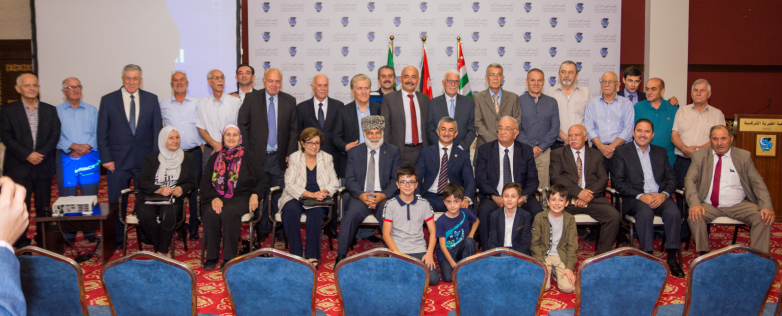
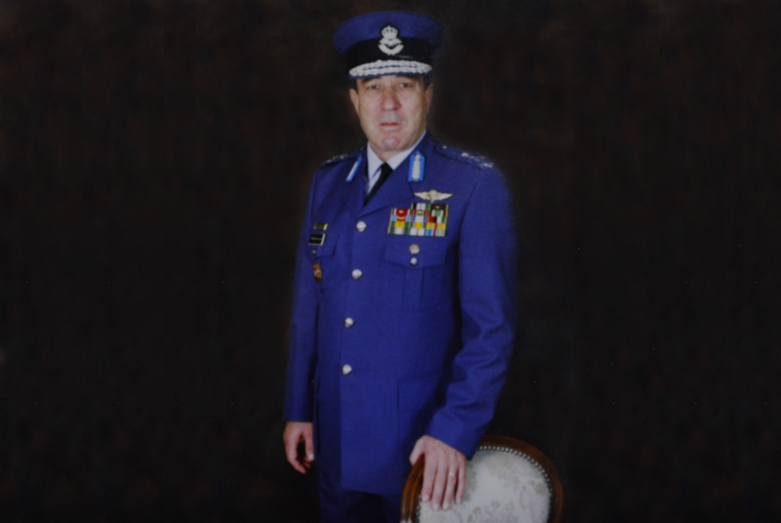
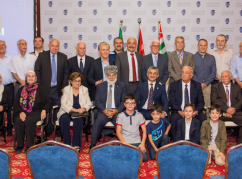
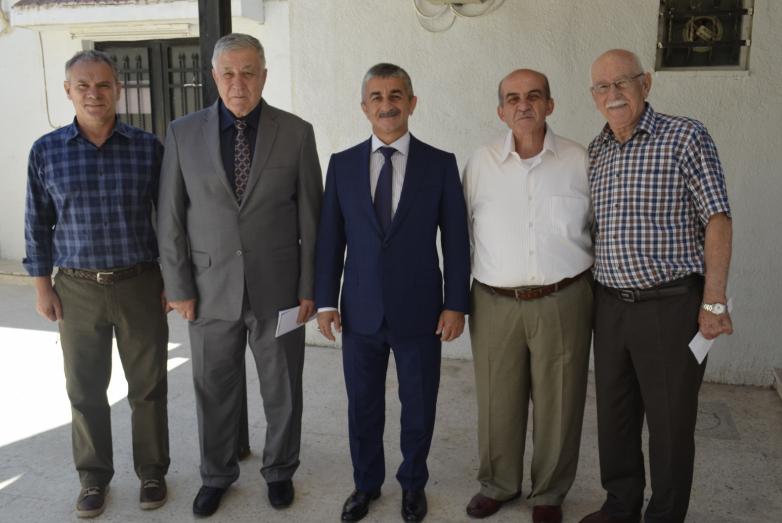
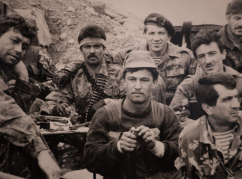
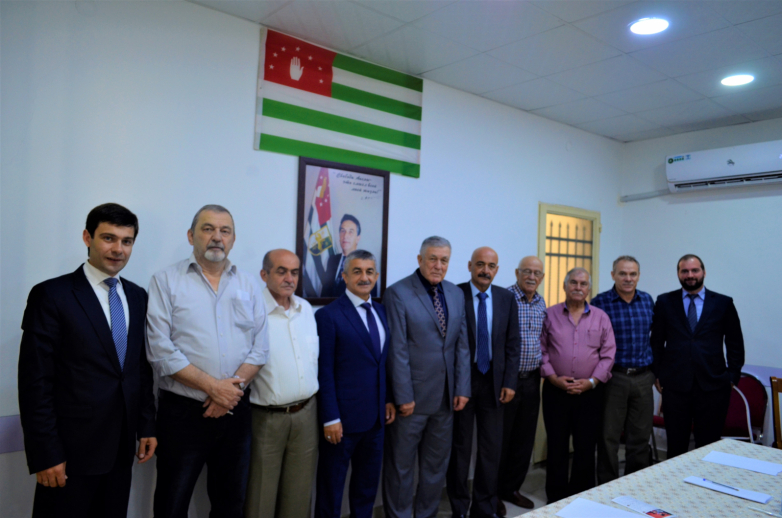
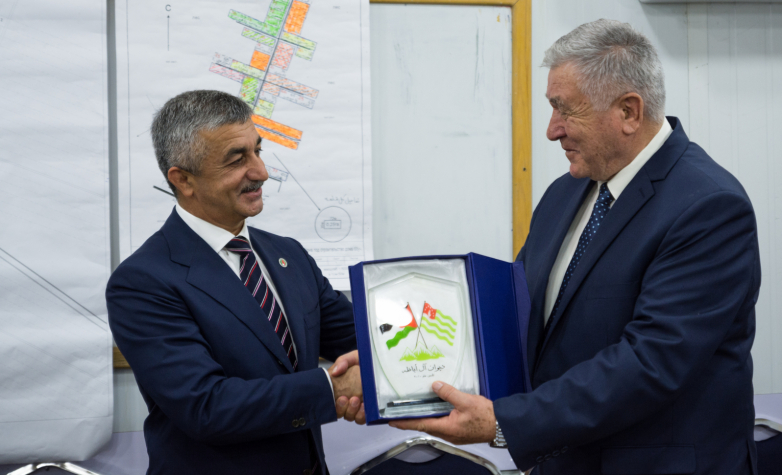
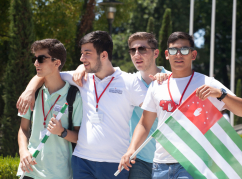
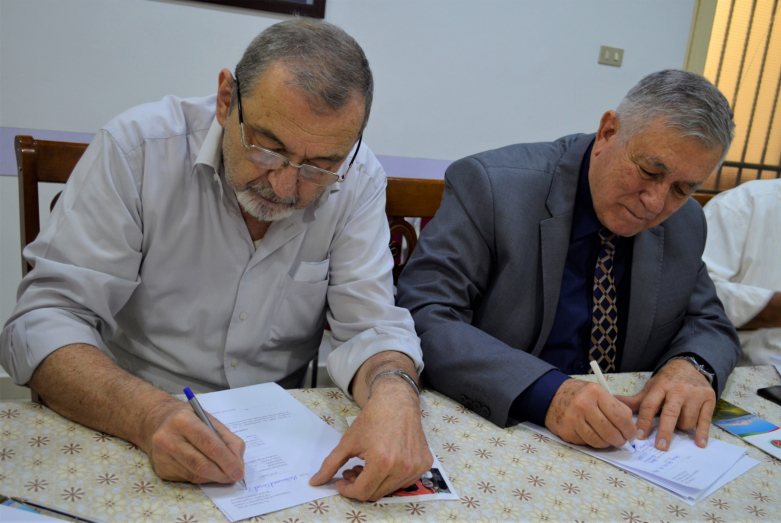
to login or register.